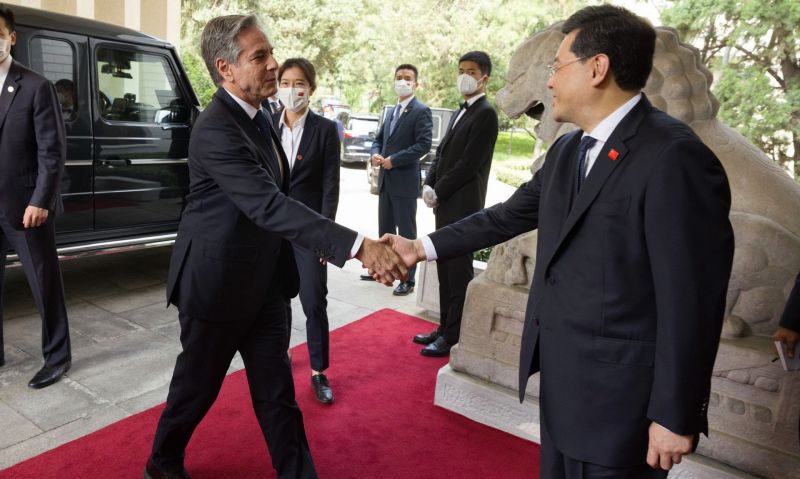
Difficult days ahead following Blinken visit to Beijing, change of command at closest U.S. fighter base to North Korea, Ukraine downs 32 of 35 Russian bombing drones.
1. The United States and China may be back to talking at a high level, but their battle for global power and influence remains unchecked and mutual suspicion still runs deep. U.S. Secretary of State Antony Blinken set low goals for his visit to Beijing this week, and he met them. About the most the rivals can hope for these days is to stop things getting much worse. Blinken pointed to difficult days ahead, while China’s foreign ministry warned the relationship was in a downward spiral.
2. The commander of the closest U.S. fighter base to North Korea received a final salute from his troops Tuesday as he relinquished his two-year post during a ceremony at Osan Air Base. Air Force Col. Joshua Wood transferred command of the 51st Fighter Wing to Col. William McKibban and departed for Georgia, where he will retire from military service to become a commercial pilot, wing spokeswoman 1st Lt. Michelle Chang told Stars and Stripes by phone Tuesday.
3. Ukrainian air defenses downed 32 of 35 Shahed exploding drones launched by Russia early Tuesday, most of them in the Kyiv region, officials said, in a bombardment that exposed gaps in the country’s air protection after almost 16 months of war. Russian forces mostly targeted the region around the Ukrainian capital in a nighttime drone attack lasting around three hours, officials said, but Ukrainian air defenses in the area shot down about two dozen of them.
4. Top North Korean officials vowed to push for a second attempt to launch a spy satellite as they called their country’s first, and failed, launch last month “the most serious” shortcoming this year and harshly criticized those responsible, state media reported Monday. In late May, a North Korean rocket carrying a military reconnaissance satellite crashed soon after liftoff, posing a setback to leader Kim Jong Un’s push to acquire a space-based surveillance system to better monitor the United States and South Korea.
5. Ammar Rashed has a stack of letters from U.S. troops attesting to his work during some of the most dangerous days of the Iraq War. But six years after he applied to immigrate to the United States under a program for interpreters who helped America, he is still waiting. Rashed is among thousands of Iraqis, many of whom risked their lives by working closely with Americans during the war and its aftermath, trying to enter the U.S. An estimated 164,000 Iraqis already have found homes in America.
- News

